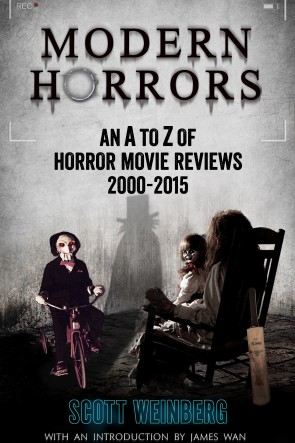Review: DARLING (2015){0}
Not to be confused with the Julie Christie one
Eraserhead, Repulsion, Psycho, The Tenant… They sure don’t make them like that any more. Except, wait – Mickey Keating does, apparently. With Darling (not to be confused with the John Schlesinger film from 1965, and hardly likely to be), the writer-director behind Ritual and Pod (not to mention the upcoming Carnage Park, something of a sensation at Sundance this year) has constructed a disturbing psychogenic fever dream fit to give Lynch and Polanski nightmares.
‘Darling’, played by Lauren Ashley Carter from Jug Face and Pod, takes over caretaking duties at an old New York house, where proprietor ‘Madame’ (Sean Young, another Jug Face alumnus) reveals, The Shining style, that the previous caretaker threw herself off the upstairs balcony for no adequately explained reason. Darling is also warned not to enter a locked room – the narrative equivalent, in any kind of horror film, of Chekhov’s gun.
Filmed in crisp monochrome and featuring some of the most disturbing sound design ever heard outside of David Lynch’s best work, Darling runs a brisk 72 minutes, with Ms. Carter occupying almost every frame. It is a tremendous performance, made all the more compelling by the requirements of Keating’s minimalistic narrative, its stark monochromatic cinematography and sparse dialogue giving Darling the patina of something out of the silent movie era, despite being set in the present day and stylistically more closely aligned with the 1960s.
Heeding T.S. Eliot’s maxim (often attributed to Pablo Picasso) that “immature poets imitate, mature poets steal”, Keating knowingly, even gleefully borrows from the masters, working through (and shaking off) his influences like a first novelist, and – if early reports of Carnage Park are reliable – developing the skills required for a real breakthrough. Darling won’t be everybody’s cup of tea, but it captivates the audience’s attention with preternatural skill, until it’s almost impossible to blink without missing some vital detail.
It’s a remarkably assured film from an exciting and substantial filmmaker.
★★★★
– David Hughes








